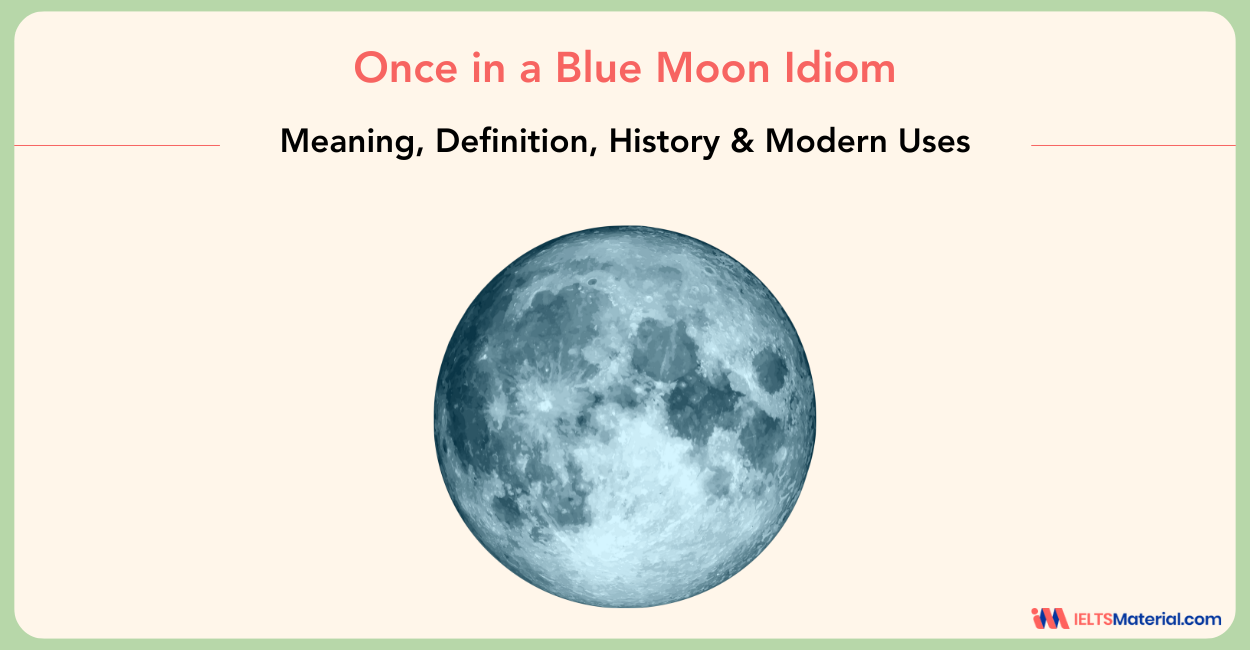Time after Time - Idiom of the Day for IELTS
5 min read
Updated On
-
Copy link
The idiom ‘time after time’ means many times (usually suggests irritation). Learn the meaning and origin of this term with this blog, which includes ample examples and exercises for achieving an 8+ IELTS band score in the writing and speaking module.
Table of Contents

Limited-Time Offer : Access a FREE 10-Day IELTS Study Plan!
When preparing for the IELTS exam, using natural idiomatic expressions like ‘time after time’ can elevate your lexical resource score and help you sound more fluent and natural. This idiom is frequently used in both spoken and written English to emphasize repetition, persistence, or reliability, making it especially useful in IELTS Speaking Part 2 or Part 3 responses.
In this blog, we will explore the time after time idiom meaning, origin, and usage of the idiom, and provide examples for IELTS Speaking and Writing.
Time after Time Idiom: Meaning
The idiom ‘time after time’ means something happens repeatedly, again and again, or on many occasions, especially when referring to actions or situations that occur regularly, predictably, or even frustratingly often.
Time after Time Idiom: Examples in Everyday Usage
Given below are some examples to show how the idiom ‘time after time’ is used in everyday English:
- Time after time, she reminded him to submit the documents, but he kept forgetting.
- The manager praised her employee time after time for his excellent performance.
- I have tried time after time to lose weight, but I always give up halfway.
- Time after time, history repeats itself when we fail to learn from past mistakes.
- “You’ve made the same error time after time! Please try to be more careful!“
- “You keep saying the same thing over and over, time after time. Stop it!“
- Time after time she was involved with men who did not appreciate her.
Origin of the Idiom ‘Time after Time’
The idiom ‘time after time’ has been used since at least the 16th century. It is a reduplicated phrase, where a word is repeated with a linking word (‘after’) to create emphasis. It gained popularity in literature, speeches, and songs as a poetic way to express repetitive occurrences.
It was further popularized in modern culture by Cyndi Lauper’s 1984 hit song “Time After Time,” which cemented the phrase’s emotional and conversational impact.
Time after Time: Similar Expressions and Synonyms
Here are some expressions related to the idiom, time after time, that will help you to boost your IELTS vocabulary.
|
Expression |
Meaning |
|---|---|
|
Again and again |
Repeatedly, often with frustration or emphasis |
|
Over and over |
Continuously or many times |
|
Frequently |
Happening many times in a given period |
|
On countless occasions |
So many times that it cannot be counted |
|
Repeatedly |
Occurring multiple times |
Do you find it challenging to learn vocabulary on your own?
Join our IELTS online classes and boost your preparation for FREE!
Time after Time Idiom: Detailed Usage in IELTS Contexts
The idiom, time after time, fits naturally into IELTS Speaking responses, especially when you are sharing personal experiences, opinions, or stories. While idioms should be used carefully in IELTS Writing Task 2, ‘time after time’ is one of those expressions that can fit into formal contexts, especially in examples, generalizations, or introducing arguments. It is a safe and natural usage that enhances the tone without making it too casual.
Let’s see how it can be used in these exams.
IELTS Speaking Part 1 – Daily Habits
Q: Do you forget things easily?
A: “Yes, I must admit I do. My mom has to remind me time after time to switch off the lights when I leave the room.”
IELTS Speaking Part 2 – Cue Card: Describe a Time You Helped Someone
“I’ve helped my younger cousin with her homework time after time, especially during exam season. She really struggles with maths, so I try to be there whenever she needs help.”
IELTS Speaking Part 3 Discussion
Q: Do people often learn from their mistakes?
A: “Unfortunately, not always. In fact, time after time, people repeat the same mistakes — especially when it comes to managing time or handling stress.”
IELTS Writing Task 2
Essay Topic: Some people think schools should focus more on practical skills. Do you agree or disagree?
Example Paragraph Using the Idiom:
Although theory is essential, time after time it has been proven that students benefit more when they are taught how to apply their knowledge in real-life situations.
Time after Time: Practice Exercises
The exercises provided below are intended to help you develop a deeper understanding of the ‘time after time’ idiom and to build your confidence in using it correctly and effectively in both the IELTS Speaking and Writing sections of the exam. Solve these exercises and then determine if your understanding of their meaning and usage is correct.
Exercise 1: Multiple Choice Questions
1 What is the most accurate meaning of “time after time”?
A Once in a while
B After a short while
C Repeatedly
D Timely and punctual
2 Choose the best sentence using the idiom:
A I saw her one time after time.
B Time after time I forget my umbrella when it rains.
C We went on time after time.
D He completed the work on time after time.
Exercise 2: Choose the Sentence with Correct Usage of "Time After Time"
Instructions: Each question has four options. Only one sentence uses the idiom "time after time" correctly. Choose the most accurate and natural-sounding option in each case.
Question 1
A Time after time, she completed the assignment once.
B Time after time he failing in every test.
C) Time after time, he forgot to lock the door before leaving.
D) Time after time means on time every time.
Question 2
A She passed the exam time after time and never studied again.
B They went hiking one time after time.
C Time after time, I tried contacting the service center but got no response.
D I don’t like people who are always on time after time.
Question 3
A I’ve told you time after time not to interrupt others when they’re talking.
B I saw the movie once in a time after time.
C My friend called me one time after another.
D Time after time, she only does something once.
Question 4
AThe machine failed once, and we called it time after time.
B He takes his medicine time after time every week.
C Time after time is when you measure punctuality.
D She ignored the warnings time after time and ended up getting fined.
Aiming to wow your IELTS examiner with your vocabulary?
Begin with our Vocabulary for IELTS!
Answer Key for the Practice Exercises
Cross-check your answers with the answer key below and understand whether you have grasped the ‘time after time’ idiom or not!
|
Exercise 1 |
Exercise 2 |
|---|---|
|
1. C 2. B |
1. C 2. C 3. A 4. D |
To conclude, ‘time after time’ is not only versatile and expressive but also perfectly appropriate for the IELTS exam. It allows you to speak about repeated actions or consistent patterns with fluency and a touch of emotional tone. Therefore, by integrating idioms like ‘time after time’ into your preparation, you are not just learning English; you are speaking it with rhythm, difference, and depth.
Useful Links:
Explore IELTS Resources

Start Preparing for IELTS: Get Your 10-Day Study Plan Today!
Check out other Idioms

Haniya Yashfeen

Haniya Yashfeen
Recent Articles

Kasturika Samanta

Prity Mallick

Nehasri Ravishenbagam







Post your Comments